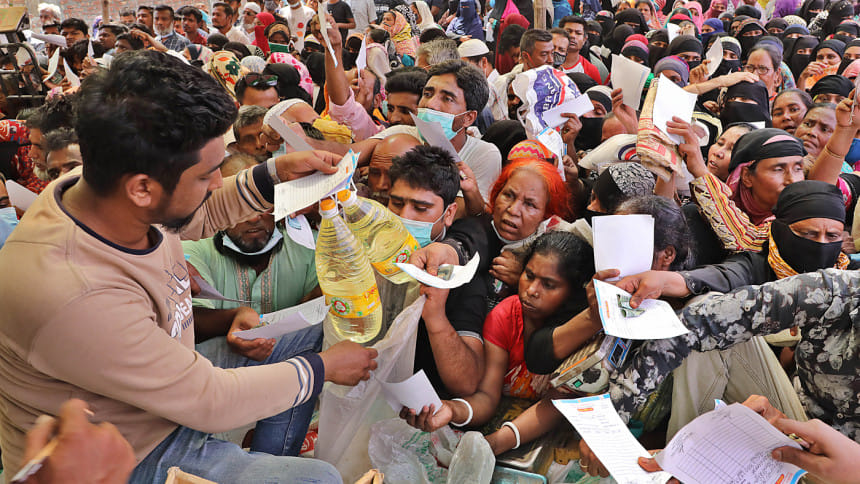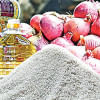Supply of essential Ramadan commodities rises

The import of soyabean oil, chickpeas, dates, palm oil, pulses, and yellow peas, items that are in high demand during the fasting month of Ramadan, are on the up, according to a paper by the Bangladesh Trade and Tariff Commission (BTTC) obtained from the commerce ministry.
The report, analysing the trend of the settlement of letters of credit (LCs) ahead of the upcoming Ramadan compared to last Ramadan, said supply of the commodities other than sugar had increased.
During the period from December 2022 to January 2023, 204,865 metric tonnes of sugar were imported, the paper said. But during December 2023 to January 2024, sugar imports decreased to 130,266 metric tonnes, the paper said.
On the other hand, Soybean oil imports rose from zero to 12,420 metric tonnes in the same period.
Chickpeas imports rose 46 percent, growing from 29,458 metric tonnes to 42,913 metric tonnes in the same period. Date imports also increased significantly, rising from 5,895 metric tonnes to 9,148 metric tonnes.
According to the paper, international market prices of chickpeas, lentils, and sugar have increased compared to last year. It added that the price of rice increased in the international market last year but decreased in the local market.
Initiatives should be taken to remove complexities related to opening LCs to ensure uninterrupted import of goods while uninterrupted gas and electricity supply in goods-producing industries must also be ensured, it added.
Yesterday, commodity processors sat for a meeting with officials of the commerce ministry.
In the meeting, edible oil refiners said the price of soybean oil would be cut by Tk 10 per litre from March 1 to pass on the benefit of reduced duty and value-added tax to consumers.
Consumers will be able to buy a one-litre container of soybean oil at Tk 163, down nearly 6 percent from the current price of Tk 173, according to officials of major commodity importers and processors.
"No decision has been taken to reduce palm oil prices," said Biswajit Saha, director for corporate and regulatory affairs of City Group, one of the leading commodity importers and processors.
Biswajit said the impact of the duty and VAT reduction amounted to around Tk 5 per litre, but as per the directive of the ministry, it would be reduced by Tk 10 a litre.
State Minister for Commerce Ahasanul Islam Titu asked refiners to reduce prices at the meeting.
In February, the National Board of Revenue lowered customs tariffs on rice, sugar, and dates while removing the VAT on edible oil imports. The move was aimed at curbing prices of the four commodities, easing inflationary pressure on consumers.
In Bangladesh, inflation has persisted at over 9 percent since March last year, eroding the buying power of the poor and those from low-income groups.

 For all latest news, follow The Daily Star's Google News channel.
For all latest news, follow The Daily Star's Google News channel. 








Comments